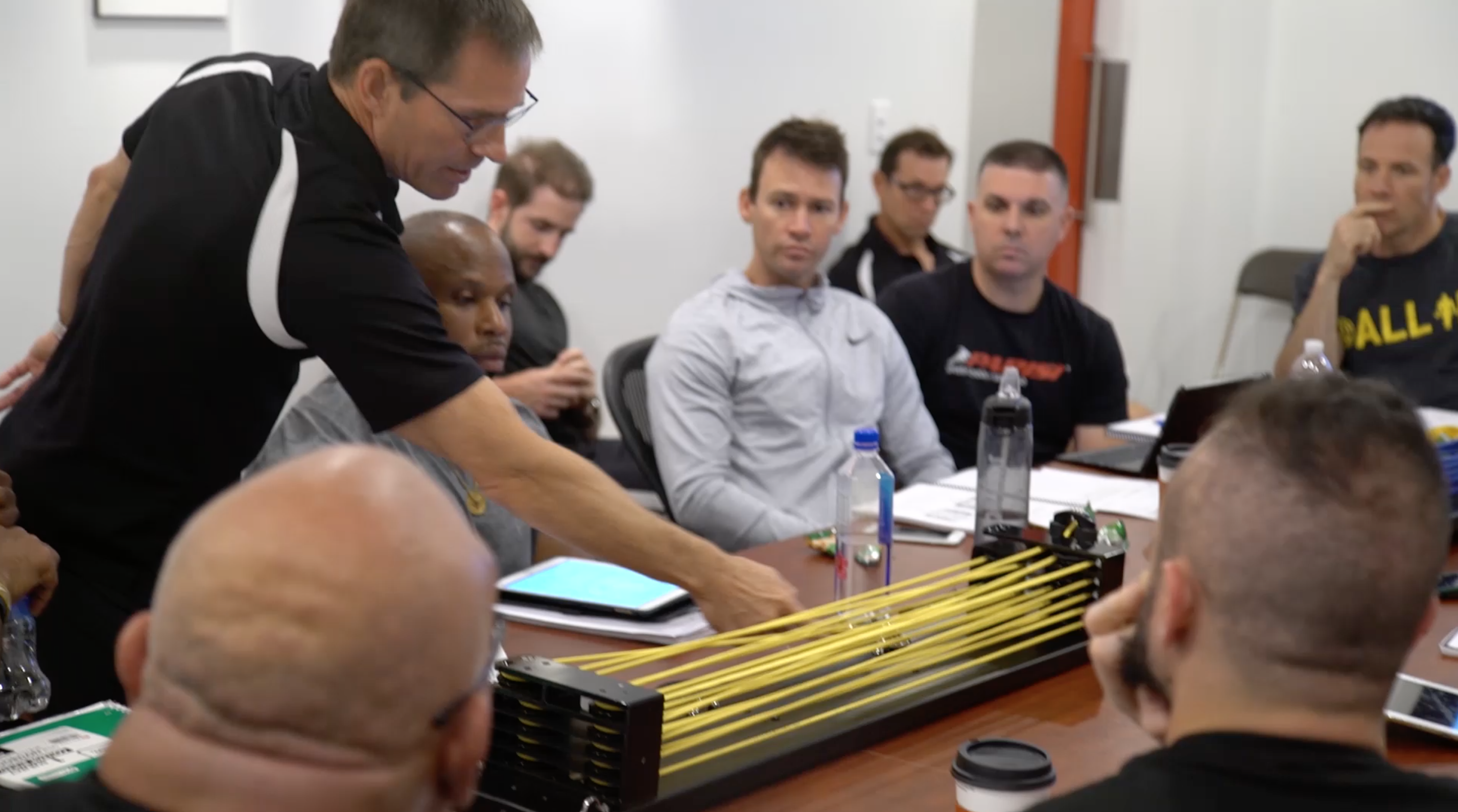An Investment in Knowledge Pays the Best Interest - Benjamin Franklin
We all know education is key, and proper application of that education really differentiates average from exceptional. The Sports Performance and Fitness Industries are growing massively and it is estimated that it will be an $87 Billion industry worldwide.
With that being said, when an industry is booming, the amount of people that want to be involved in the industry booms as well. That can be both a good and a bad thing.
It’s good because we need people, according to the CDC, a third of the US population is overweight and childhood obesity continues to spike.
The bad part? We live an an era where anyone and everyone has a voice and a platform and can call themselves a coach without proper credentials.
This is not only detrimental to the industry’s reputation, but also to the population being coached. There are multiple stories of under-qualified or non-qualified coaches injuring collegiate athletes in the news and it’s important that we start making sure that the people that have access to our athletes are not only qualified, but are continually educating themselves in the minutia of what is needed to efficiently and effectively train our athletes.
The reason for this article is to discuss the benefits of certification, continuing education and community in sports performance education.
#1. A Case For a Practical Application Certification
It’s important to note that a certification means that a coach has met the minimum requirements to have those letters behind their name. It doesn’t always mean they have applied that knowledge or really have any practical application tied to those letters.
In today’s day and age where answers to questions can easily be found on Google, your certification really just means you paid an organization, took a multiple choice and short answer test and now you have the “knowledge”. I know some very smart "Google Certified" Strength Coaches that I would trust with my son or daughter over some of those certified through a governing body.
That being said, the job of a coach is far more than the sets, reps and exercises you choose for your athletes. The reason that there has been recent talk from players questioning the knowledge of strength and conditioning coaches is the fact that a myriad of letters behind your name doesn’t mean squat until you practically apply those letters in a manner that safely and effectively makes an athlete better.
I believe that all certifications should have a true practical application section. Not just writing a program, or answering “what if” questions, but having coaches go through the movements, shadow coaches and really hone in on their philosophy.
A doctor doesn’t just take a test and call themselves an MD, they go through a minimum of 11 years of schooling, practical application and residency. We should be holding our coaches to the same level of scrutiny, maybe not 11 years, but at the very least a required hands on intensive in order to get a look into the real world of strength and conditioning and what it really means to have those letters behind their name.
#2. Case for Practical Application Continuing Education
Just because you have a certification and lift weights yourself doesn’t mean you understand the intricacies of training people. Although the Certified Strength and Conditioning Specialist Exam from the NSCA is the gold standard, they still require continuing education courses in order for you to stay licensed.
They say on their website that
“The purpose of continuing education is to require that certified individuals stay abreast of evolving knowledge and skills in the profession, and to promote the ongoing competency of those certified. Because scientific knowledge, training techniques, and equipment are continuously evolving in strength and conditioning, periodic reporting of continuing education is needed to ensure that certified individuals are continually competent.”
It’s highly important to note that your knowledge and skills should always be progressing. That being said, a quick webinar and 10 question quiz is not enough to call it continuing education.
A coaches job does not happen behind a desk, or in a book, it happens in the weight room or out on the playing surface.
We train our athletes specifically in how they play, we should train our coaches in the same way.
Continued knowledge should always have to be applied in a real world setting in order to prove the knowledge. Just the same way as you wouldn’t trust your surgeon who just took a multiple choice test, our coaches shouldn’t just take some online assessment to continue to coach our athletes.
#3. Case for Community
Accountability is key and in today’s technological era, it’s extremely easy to stay in contact and build a digital community for yourself.
The NHSCCA does an amazing job of this in their Facebook group. Coaches asking questions, interacting and promoting courses, webinars and conferences. It’s an amazing resource for coaches looking for programming suggestions, athlete specific questions and even more.
Building a community in strength and conditioning is huge. Not just the type of community that sees each other once a year at conference, but a community that pushes each other to work harder, study more and be better coaches.
This community allows for another facet of education that is highly important, mentorship. Every successful person has had a mentor in one way or another. Someone who is where you want to be and can shorten your learning curve by helping you not make the same mistakes they did in their career.
Education goes beyond the gym and beyond the textbook, it comes with community and mentorship. When you can be learning everyday from people in the trenches and people that have been there and done that, your practical knowledge can skyrocket and the health and wellness of our athletes will massively benefit.
If we were to just make these simple changes to the way we initially and continually educate our coaches, and built a community in which we could hold each other accountable, injuries would decrease, performance would increase and our coaching population would be far more prepared for the day to day rigor that is coaching.




.png?width=110&name=Listing%20Image-basketball%20ladder%20drill%20%20(350%20x%20350%20px).png)













